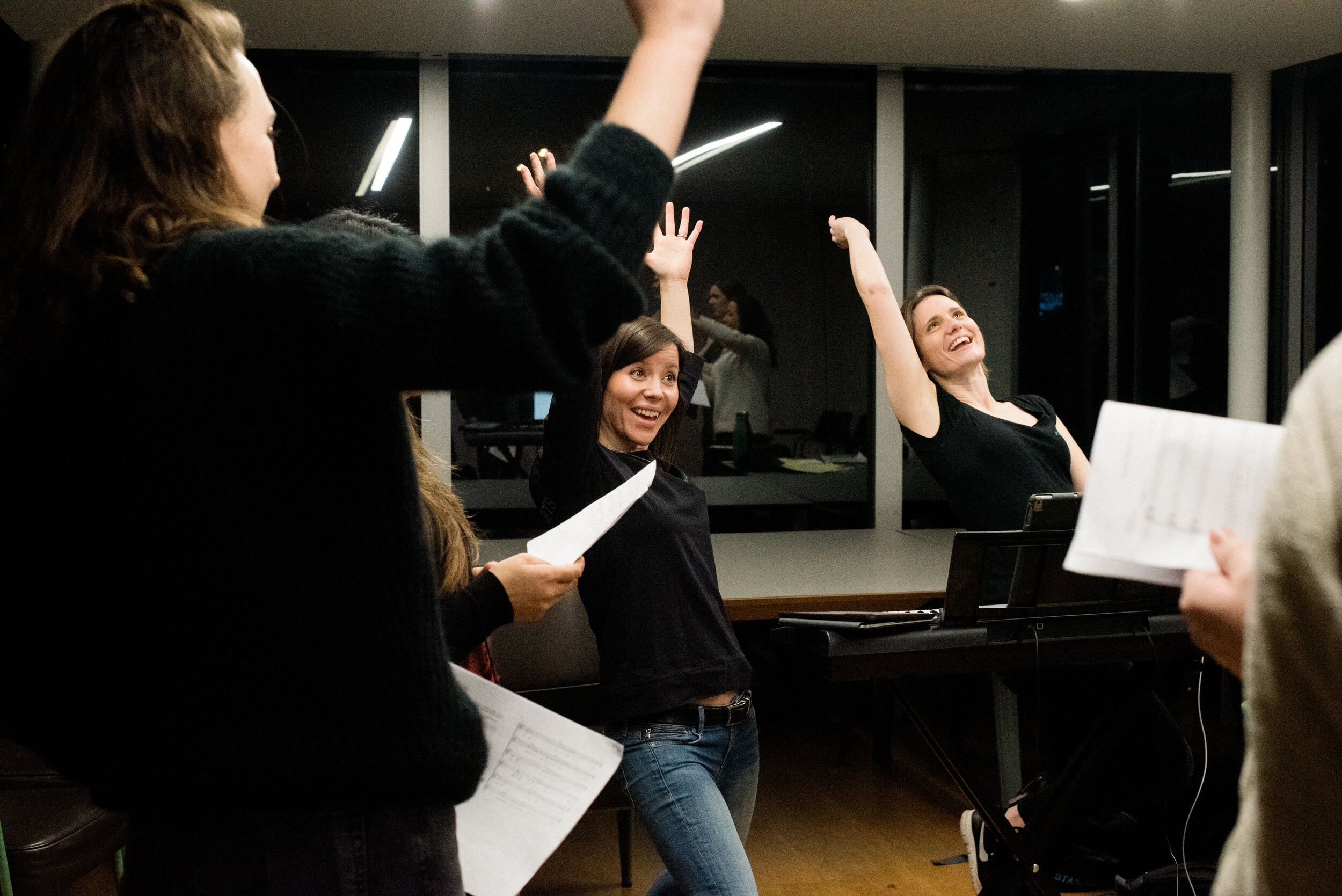More Than Stage and Screen - Why the Arts are Bigger than You Think and Why You Should Care
/The Government has announced a £1.57 billion support package for arts and heritage institutions in the UK. Culture Secretary Oliver Dowden declared the grants and loans are to be used to preserve the ‘crown jewels’ of the arts sector. The funds come after weeks of increased pressure from many working in, and passionate about, the UK’s culture industry, particularly in the wake of venues such as the Nuffield Southhampton Theatres closing and organisations like Cirque de Soleil and The National Theatre announcing thousands of redundancies between them. Meanwhile many more across the industry are at serious risk of closure or unemployment while the country remains in a Covid-induced limbo, waiting for research into the safety measures necessary to get the industry open and working once more in a way that is commercially, logistically and artistically viable for all.
Complete details of the grants and loans and how and to whom they’ll be distributed are yet to be released, but Dowden has suggested that the support will be available to venues only, as a one-off boost. Without further elaboration about how the fund will support the wider industry, the money could be too little, too late, and without the breadth of reach the sector deserves. While it looks as though many of our beautiful National Portfolio Organisations and venues may be offered vital assistance during this challenging time, the package ignores the wider concerns of how grassroots organisations and freelancers working with and in the community will survive. It feels like this money could perpetuate the rhetoric that the arts are an elitist thing to be ‘purchased’ or ‘attained’, and that our government only value the arts they can directly see on stage and screen that have a tangible impact on the economy. What about the tangible impact on people that goes hand in hand with this?
This is something we witness every day. Our work centres around singing with and in communities. With a focus on wellbeing and connection, we usually work with community choirs, workplaces, young people and older adults, including those with dementia. We have been unable to work in person since March, and without further research or clarification on the health risks of group singing and its potential impact on spreading Covid-19, we are facing an uncertain future. The need for our work was illustrated in a mini-documentary put together earlier in the year, which highlighted the wide impact community and participatory arts can have on people’s lives. It’s the sort of work that has never been more urgent or needed in helping people to rebuild their lives in the wake of this pandemic.
being part of the arts is more than being in the spotlight
Our fear is that the wide-ranging field of arts participation will suffer greatly due to Covid-19. As a consequence millions will miss out on life-changing opportunities to create, connect and thrive. While arts engagement can lead to employment in the arts sector, there are so many other tangible and powerful benefits to ‘taking part’ that have been undervalued for too long and could be at risk of being lost altogether.
We believe the ability to be creative is something that everyone should have access to, regardless of economic circumstances, background or lifestyle. Without financial support through this ongoing lockdown, many of the micro organisations who exist to keep the arts accessible risk being significantly impacted in terms of what they can offer, with many facing permanent closure.
Why does this matter if the larger, more famous or economically operable venues are saved? Because the arts industry is like an iceberg; most people only see the bit above water (the Panto they go to each Christmas or the West End show they treat themselves to), but without the mass body of the industry holding it up below the surface, the whole thing loses its structural integrity. If having time to reflect on our work and the industry during this lockdown period has highlighted anything for us, it’s that it’s time for everyone to see all of the iceberg.
Being creative through arts participation leads to so many paths, with the most ‘obvious’ - becoming an actor - one of thousands of possible outcomes. Participating in the arts isn’t about encouraging everyone to become a professional performer, but allowing everyone the chance to experience the broad and far-reaching benefits the arts can offer. While we all ‘consume’ the arts (be it in theatre or music venues, at gigs and festivals, on TV or at the cinema), that work trickles down through regional and local theatres, community and amateur arts companies, and into the schools, church halls and community centres who nurture the seeds that grow into one of our nation’s leading soft powers. It’s not just about supporting those who work in the sector so they can earn money and live their life, it’s about supporting an industry that keeps the public living and valuing theirs.
Many arts participants will never go on to work professionally in the arts and that’s OK; in fact that’s the beauty of it! It is more important that so many reap the life-changing benefits of being involved. The self-development, the social connections, the transferable skills, the place to find and use and develop our voices; they are all things we have personally gained from arts participation, and witnessed and shared with others through our own work. Without support for community arts, the iceberg will start to melt from beneath. Without access and a wide scope of practice, the arts will only become more elite and exclusionary.
for some, arts participation will lead directly to a career. for others, the skills they pick up will stay with them wherever they go
As things continue to melt at the bottom, we risk losing those companies who nurture the talent that feeds the tip of the industry iceberg. It’s within the world of arts participation that artists, creators, actors and makers find their home and grow. Think of the Youth Theatres, outreach groups and community initiatives that touch the lives of so many and, on top of the benefits already mentioned, create the ticket buyers of the future and offer a training ground for a career in the arts. A place to nurture the wardrobe and wigs teams of the future, the producers, writers, composers and directors of tomorrow, the fight co-ordinators and choreographers, the marketeers and administrators, facilitators, technicians, and more. Without security from the bottom up, arts engagement and participation is significantly impacted and the quality of our world famous culture scene will suffer from bottom to top.
For those of us who choose to lead community arts programmes, we often find ourselves misunderstood. We've been asked if we have appeared in Eastenders, or which West End show we are in too many times to mention. Or we’re told, “It’s time you chucked this all in for the stability of a teaching job, no?” Our work is sometimes seen as something to be tagged on to a bigger production; a token endeavour for inclusion. For many people, the spectrum of arts employment is purely the people they see in the finished product at the top. All of the mechanics behind the scenes is in jeopardy because it’s not always understood. How often do we show the full breadth of arts jobs publicly? Perhaps we, too, need to talk more about the range and depth of our own work at Starling Arts, to complete the narrative and make the case for the arts more three dimensional, highlighting all that work below the surface. The big organisations cannot exist in the future without the little ones. The foundations and soul of the industry risk melting away without the general public knowing.
We can’t imagine a world separated into those who can and those who cannot access the arts. The industry needs to be better understood, valued and supported through both internal and external advocacy.
So while we are relieved that the future of the arts is being stabilised in some capacity, the pledge fails to help many, including those who are freelance/self-employed, or work independently of large venues or directly within communities. While we are of course over the moon that many of the nation’s favourite arts venues and organisations should survive to fight another day, many others won’t benefit at all, and that breaks our hearts. Our hope is that more support is offered, both from the government and other sources, so that everyone can really get behind valuing the full range of roles the arts play in culture, community and economy. Let’s show everyone all of the iceberg.
How can you help?
Talk about the value of arts participation you’ve experienced.
Learnt a lot in youth theatre? Shout about it! Got an awesome job because of your drama classes as a teenager? Talk about it to your colleagues! Took part in an exciting outreach programme at your local theatre? Tell the world! Got a theatre programme? Read the biographies of everyone on stage and off. If there’s a job title you don’t recognise, look it up!
Campaign for better arts support.
Sign petitions, write to your MP, keep making noise. Check out The One Voice Campaign and Campaign for the Arts to be part of the conversation
Support Your Favourite venues and organisations.
Donate cancelled ticket sales back to the companies. Buy gift tokens for friends’ birthdays. Attend online events and pay for them. Watch streamed performances and donate/purchase digital tickets in return for the service.
Any other ideas or comments? Post them below!
Anna and Emily




